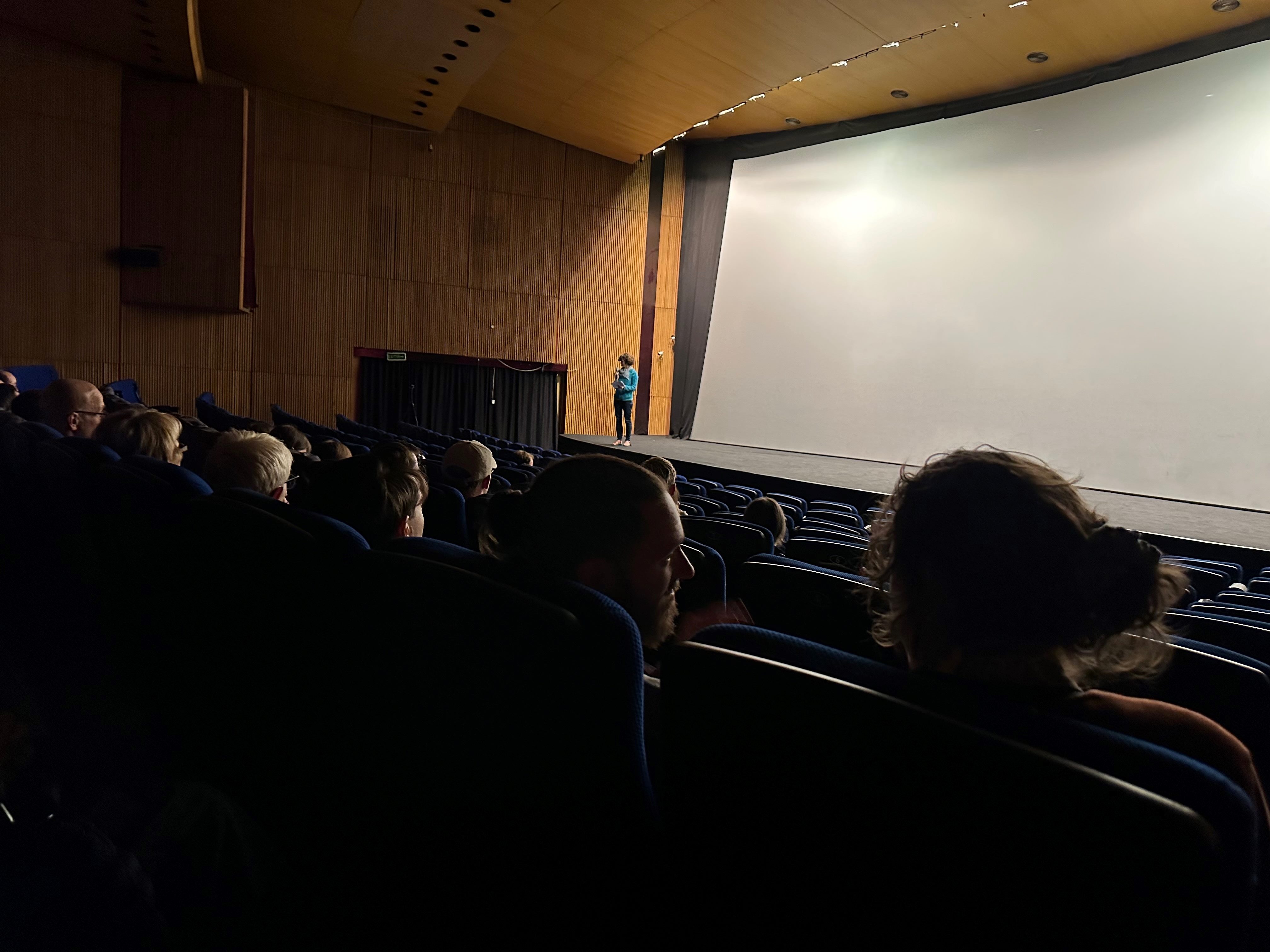
Georgia is one of the 50 countries participating in the Banff Centre Mountain Film Festival World Tour.
The Banff Centre Mountain Film Festival World Tour is screened around the world in more than 450 destinations in 50 countries.
For some countries, given political and other circumstances, hosting an event like the Banff Mountain Film World Tour is extra complicated.
This year, we wanted to recognize some of our tour hosts who bring these stories of resilience and passion to their communities, reminding us of the power of story, adventure, nature, and connection.
We reached out to Frida Ayala (Venezuela), Jeremy Gaskill (Georgia) and Muntasir Mamun (Bangladesh) to hear their stories about what hosting a World Tour event means to them.
How did you start working with the festival as a Tour Host?
Frida: “In 2002, my late husband was climbing Huascaran. He stayed in Huaraz and saw a poster for the BMFF. He came home very excited because he thought the idea of a mountain film festival was wonderful… He decided to bring the festival to Venezuela [and] we had our first festival in 2003.
Jeremy: “[My wife] and I had attended Banff Mountain Film Festivals for years… When we later returned to Georgia, we reconnected with Paul, who had also been a Peace Corps Volunteer here [and] the idea of Banff just clicked for us.”
Muntasir: “2003, I went to Everest Base Camp and had the pleasure of meeting Christopher York who suggested that I explore the Banff Mountain Film Festival. In 2005, I sent my first email to Jim Baker, the festival’s world tour manager.”
Why did you want to bring the tour to your country?
Frida: “The first motivation was… to reinforce the bonds among the mountaineering, rock climbing and outdoor sports in Venezuela with the world. Right now, the festival is an opportunity to bring hope, resilience, a sense of freedom and the right to dream of a better world.”
Jeremy: “[We] knew what significant role mountains play in Georgia’s culture and felt that the festival belonged here. We saw Banff as a way of tapping into [a growing enthusiasm for mountain sports] and of inspiring new possibilities.”
Muntasir: “I wanted to introduce the Tour here to spark passion and curiosity about the world beyond our borders; to show that adventure is not just for explorers from faraway lands, but something we all can experience and be a part of. It’s also a way to… encourage [environmental preservation] through storytelling.”
What challenges (if any) have you experienced hosting? And how have you overcome them?
Frida: “In 2006 my husband and partner died coming down from Nanga Parbat, so I had to carry the responsibility of doing the fest and raising my little children. In 2014 and 2018 we [had] the most difficult political problems, fights in the streets, and a crazy economy. [That year], we went to the venue to cancel [and] found 100 people begging us to [stay open]. Years have passed, many have left the country, and [gaining] a new audience has been an issue. This has been one of the most difficult years due to the economic crisis and political and social instability.”
Jeremy: “In April, the Georgian government announced plans to introduce the ‘Foreign Influence Transparency Law.’ As a result, huge, sustained protests erupted across the country, particularly in Tbilisi. Understandably, the law and the upcoming October elections [are] the primary focus for many Georgians. While the Mountain Film Festival is important to us, we recognize that it doesn’t carry the same weight as these larger, critical challenges. For now, we have just postponed this year’s Festival and we remain hopeful.”
Muntasir: “Securing funding. [The screenings are free, so] securing sponsorships has been particularly difficult, as the festival is niche and not considered a mainstream film event."
What value do you feel the tour brings to your community?
Frida: “Hope!”
Jeremy: “New inspiration, broader perspectives, and a deeper appreciation for the beauty of nature.”
Muntasir: “Motivation; igniting a passion for outdoor activities, conservation efforts, and personal growth.”
Why do you think it is important to celebrate and showcase mountain culture in your community?
Frida: “People also come here who find a message of values and possibilities that they want to confirm in their lives. Many start doing outdoor activities after experiencing the festival.”
Jeremy: “By showcasing mountain culture through the eyes of others…, we can reawaken Georgians' appreciation for their own country and deepen their understanding of what’s possible.”
Muntasir: “In Bangladesh, while many live near the poverty line, that doesn’t diminish their passion for adventure or the dreams they hold. The festival creates a space where adventure is celebrated in all its forms, and where everyone is reminded that the spirit of exploration and discovery is universal.”
Author: Akcinya Kootchin, Banff Centre for Arts and Creativity
Located in the Canadian Rocky Mountains, the Banff Centre Mountain Film and Book Festival is a globally recognized event and tour celebrating the beauty, adventure, and culture of mountains globally. Join us at Banff Centre for Arts and Creativity from November 1 – 9, 2025 for the 50th Anniversary of the Festival in Banff, Alberta! The nine-day festival showcases live events with adventurers, authors, photographers, and filmmakers sharing their inspiring stories.
Online films are also available to watch throughout the year on Banff on Demand.
To find out more about the Festival, World Tour, and related programs, please visit banffcentre.ca/banffmountainfestival.
Media Contact
Interested in reporting on this or any other Banff Centre story? Members of the media can reach out to communications@banffcentre.ca for more information.